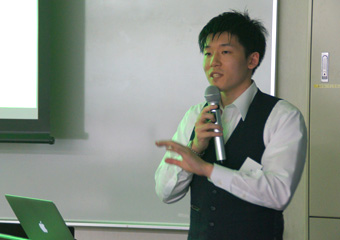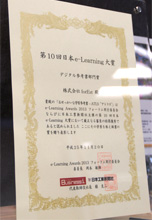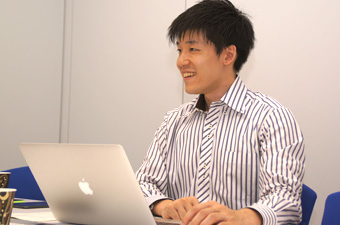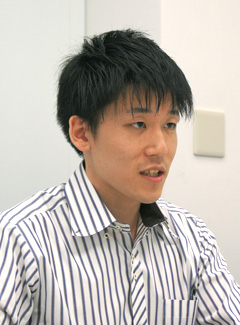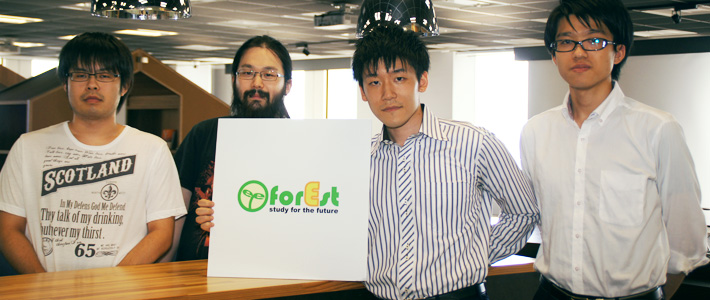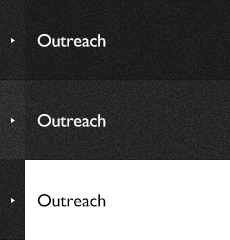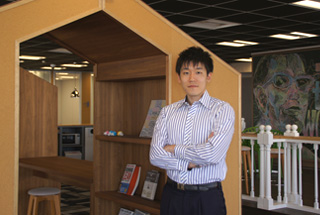
The ultimate goal that Goto hopes to achieve would surprise many: to fight world poverty with the power of ICT.
"I first became aware of the issue of world poverty when I was in elementary school.
I was watching a documentary and learned there were children who wanted to study but could not afford to go to school.
Since studying wasn't very appealing to me at that time, I thought it was strange that children who sincerely wanted to study could not."
To find a solution to this problem, Goto thought about working abroad as a volunteer when he was in high school. However,
after doing some serious research, he came to the conclusion that the social system had to be changed in order to address the core of the problem.
"I believe that the issue of poverty has two sides: education and employment. Personnel expenses account for a large proportion of the cost of education.
With the use of e-learning, high-quality and affordable education will be available, and people will be able to enhance their competitiveness in the labor market.
Using the data collected by ATLS, I will analyze how to develop effective learning methods for not only high school students but also the general population,
and improve the quality of education. I also want to improve their employment situation
by creating an environment where they can remotely participate in the labor market of developed countries through crowdsourcing."
Goto is learning about crowdsourcing in graduate school. He may soon be able to apply what he is learning to achieve his goal.
Lastly, Goto shared his experience and left a message for students who aspire to become entrepreneurs.
"Reflecting upon my own experience, I would say that you should give it your best once you commit to your business.
When I started forEst, I faced many obstacles and thought about quitting and getting a job.
I couldn't make any progress because I couldn't make up my mind about whether to run a company, find a job, or continue my research.
That's when my acquaintance, a fellow entrepreneur, asked me whether I was doing my best and told me that I wouldn't be left with anything if I wasn't.
I began to resent my half-hearted efforts and decided to give it my all. I stopped job hunting and devoted myself to forEst,
which made me feel very relieved and confident. In a way, being a student is a privilege because people will support you for doing your best.
People whom you normally would not have the opportunity to talk to spare time for you. You may have fear of failure or defeat.
Nevertheless, once you make up your mind, you shouldn't take precautions against failure. If you devote yourself to your company, you might see a different world."
. Any information published on this site will be valid in relation to Science Tokyo.



